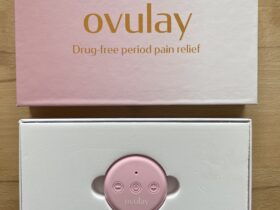A new study by neuroscientists Elizabeth Rizor and Viktoriya Babenko of the University of California Santa Barbara shows that the menstrual cycle reshapes the brain. The changes appear to be controlled by the fluctuation of hormones, just like the variation in hormone levels steers the menstrual rhythm.
Brain-wide cycle changes
“These results are the first to report simultaneous brain-wide changes in human white matter microstructure and cortical thickness coinciding with menstrual cycle-driven hormone rhythms,” the scientists write.
To better understand how menstruation affects women’s brains, the researchers had 30 women with natural menstrual cycles get MRI scans during three menstrual cycle stages .
At each stage, the researchers also tested the 30 women’s hormone levels.
Are we smarter before ovulation?
The hormone level tests showed that gray and white matter volumes and the volume of cerebrospinal fluid followed the fluctuation of hormones at each stage of the menstrual cycle.
White matter is a network of neuronal fibers that transfer information between areas of gray matter. The results show that the amount of white matter changes just before ovulation.
This change suggests that information is transferred more quickly between areas of gray matter.
The scans showed that while the brain’s total weight didn’t change, the allocation of the various brain elements varied.
What effects this has on female mental and physical health still needs funding to be figured out.
Find out what works for you
You can take matters into your own hands by measuring your physical and mental performance during your menstrual cycle using a wearable paired with an app on a smartphone.
Measuring your health data during the various stages of your menstrual cycle can help you discover when you have the best opportunities to excel and when you should lay low and recover.
However, you may want to check how the wearable and smartphone apps protect your data from third parties before you pick.
See also Privacy and Wearables – opportunities and ethical challenges in tracking your intimate data
Need for more women’s health research
Women comprise at least half of the world’s population. Women go through around 450 periods during their fertile years, roughly half of their lives.
However, research on women’s health issues, not to mention research on female health issues related to hormonal changes, is massively underfunded compared to research on men’s health issues.
Varying research results on athletes
Research on the effect of the female cycle on female athlete’s physical performance shows varying results.
It seems that every woman is different when it comes to finding out which stage of the menstrual cycle yields their best performance.













Leave a Reply